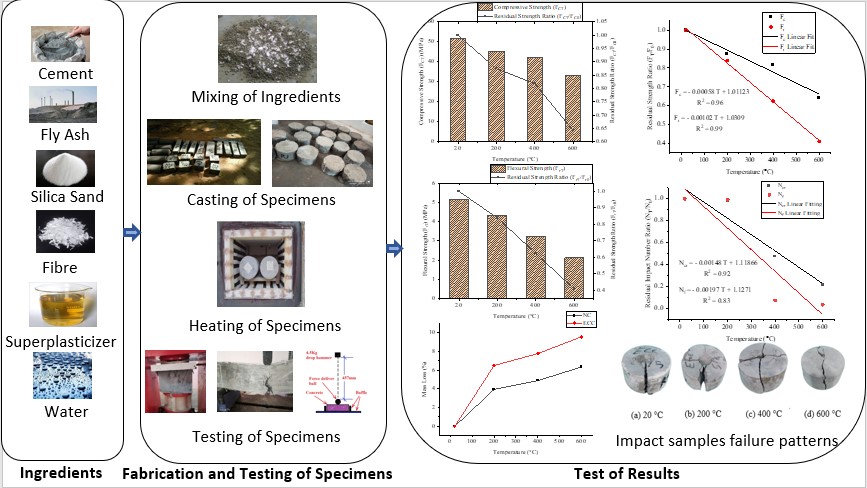
The study conducted a practical examination to evaluate the influence of high temperatures on the strength and repetitive impact performance of Polypropylene fiber-reinforced Engineered Cementitious Composites (ECCs). Compressive and bending strength were examined using cylindrical and beam-shaped specimens, respectively, while repetitive impact evaluations were conducted on cylindrical specimens following ACI 544-2R methodology. The control samples were evaluated at ambient temperature, while three additional sets underwent testing after exposure to 200°C, 400°C, and 600°C, followed by cooling. The outcomes demonstrated that the reference ECC samples displayed superior resistance to failure impacts compared to standard concrete, characterized by a yielding catastrophe pattern. Despite a decline in impact resistance and ductility following exposure to temperatures of 200°C, 400°C, and 600°C, ECCs still outperformed normal concrete. The number of impacts leading to failure decreased from 260 to 258, 20, and 10 specimens following exposure to temperatures of 200°C, 400°C, and 600°C, respectively, maintaining ECCs' impact resistance at least four times greater than that of conventional concrete counterparts. This study also examined the durability of ECC and normal concrete, focusing on rapid chloride penetration, sorptivity, water absorption, acid attack, and sulphate attack. ECC demonstrated superior durability across all measures, attributed to its high tensile strain capacity and controlled micro-crack width.
Total file downloads: 18